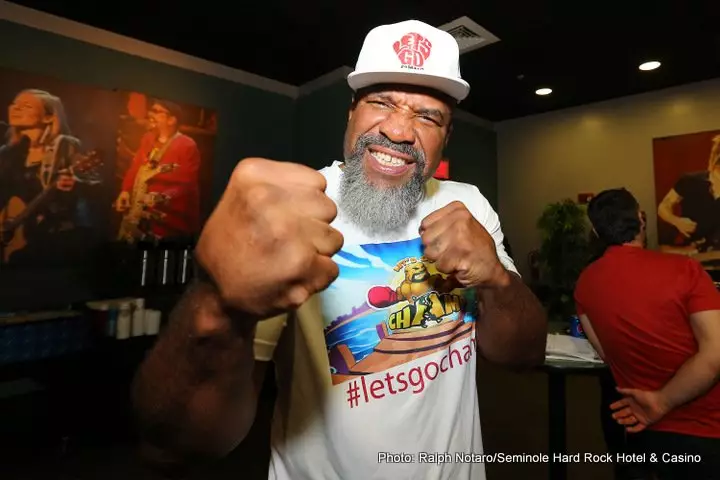At an age when most athletes are considering retirement, Shannon Briggs, the once-revered heavyweight champion, has declared his intentions to return to the boxing ring. Announcing his fight date for July 1 at Nashville’s Troubadour Arena, Briggs insists he is far from finished—despite a notable absence from the professional scene since 2016. His confidence is palpable, yet one must question whether this renewed ambition is grounded in reality or merely an echo of past bravado.
Briggs, with a professional record of 60 wins, 6 losses, and 1 draw, remains a significant figure in boxing history. Having held the WBO heavyweight title and claimed the moniker of the lineal champion, his legacy is well-established. However, his lengthy hiatus does raise eyebrows; it’s been nearly a decade since he last stepped into the ring. His fiery ambitions notwithstanding, the realities of age and the modern heavyweight division’s evolution could pose serious barriers to his comeback aspirations.
Pursuing the Big Names: Wilder on His Radar
In a recent interview with Fight Hub TV, Briggs expressed an eagerness to face off against Deontay Wilder, a current heavyweight powerhouse known for his knockout prowess. Briggs described the matchup as “great” for Alabama—an intriguing consideration given both fighters’ regional ties. But the question remains: does Briggs have the physical capability to challenge a boxer like Wilder, who has maintained a high level of competition?
The allure of high-profile matchups is undeniable, but Briggs’ history of announced comebacks that fizzled out makes fans skeptical. His previous attempts to generate interest in fights—like a proposed bout against David Haye—failed to bear fruit, leaving supporters questioning if this latest announcement is yet another false dawn. The fervor of boxing fans is often tantalized by the idea of seeing legendary figures return, yet the reality of such contests can often prove disappointing.
The Heavyweight Landscape: Opportunities and Threats
Amid speculation about whom Briggs might fight, there are murmurings of a potential clash with fellow veteran Oliver McCall, who recently embarked on his own comeback journey at the age of 60. Such a matchup would undoubtedly pique some interest, especially given that McCall has also fought at the Troubadour Arena. Nevertheless, the core of the issue remains whether Briggs can still compete with fighters who are younger and potentially quicker.
The heavyweight landscape of 2025 presents a considerably different picture compared to Briggs’s prime in the late 1990s and early 2000s. New champions are emerging, and the level of skill has advanced significantly. This context brings forward a critical question: does Shannon Briggs still possess what it takes to tread among modern champions? His declaration of readiness suggests a fierce determination, but merely wanting to return is often insufficient against this new breed of athlete.
As fans, we remain hopeful but also anxious. While nostalgia often drives a desire to relive past glories, the sport has evolved—leaving room for genuine concern for those attempting to recapture former brilliance after a long stretch away from competition. If Briggs is truly prepared to mount one more comeback, he has the daunting task of proving that his fight with age can be more than just relegated to the sidelines of conversation.

